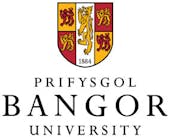I graduated in Joint Honours Botany and Zoology at the University of Bristol in 1981, and then progressed to doctorate research at the University of Oxford (St John's College), investigating the 'Ecology of Temperate Symbiotic Anthozoa'. In 1985 I moved to a NERC funded postdoctoral position at Bangor University, School of Animal Biology, where I investigated the 'Behavioural Ecology of Shoaling Fish' and specifically the 'Twilight Hypothesis'. In 1987, I transferred to the School of Ocean Sciences to take up a 5 year Research Demonstratorship in Marine Biology. I was Course Director of the MSc in Marine Environmental Protection for 22 years between 1989 and 2011. I developed research interests in mapping coral reef biotopes, Environmental Impact Assessment, Marine Protected Areas and Coastal Zone Management. I became a permanent member of staff in 1990, Lecturer in 1993 during which I held a Visiting Lectureship at the University of Mauritius, and was appointed to a Senior Lecturer in 2000. I was awarded a University Teaching Fellowship at the Graduation ceremony in 2007, and won a Bangor University Research Impact Award 2015 and received a personal Chair in 2016, and became Dean of Postgraduate Research, heading the Doctoral School from November 2016 to November 2019, when I became Head of the School of Ocean Sciences I am a Trustee of the Chagos Conservation Trust, and a Trustee of the Seawatch Foundation, a member of the NERC College, and DEFRA Darwin Plus Advisory Group.
Research
Most of my current research is developed in partnership with end users (e.g. Foreign and Commonwealth Office; Cayman Islands Government; Seychelles Island Foundation; The Nature Conservancy, USA). Recently, my research has focussed on coral reefs of the UK Overseas Territories, and research strategy is driven by the need to protect marine environments largely through the establishment and monitoring of Marine Protected Areas, or use of tools such as Environmental Impact Assessment and Coastal Zone Management, often to comply with the major conventions (e.g. Convention on Biological Diversity CBD, Convention on Migratory Species CMS, Convention on Trade in Endangered Species CITES, RAMSAR Convention on wetlands, and EU Habitats Directive. Projects are generally established through links with leading scientists with complementary interests, and through liaison with stakeholder organisations and implemented through practical research overseas involving scientific diving operations, training, stakeholder consultations and outreach initiatives, often including placement of Project Support Officers to build capacity within organisations. I am a member of the DEFRA Darwin Initiative panel of the Darwin Plus Advisory Group for the British Overseas Territories.
- Bangor, Wales, UK
- Website
- Article Feed
- Joined


